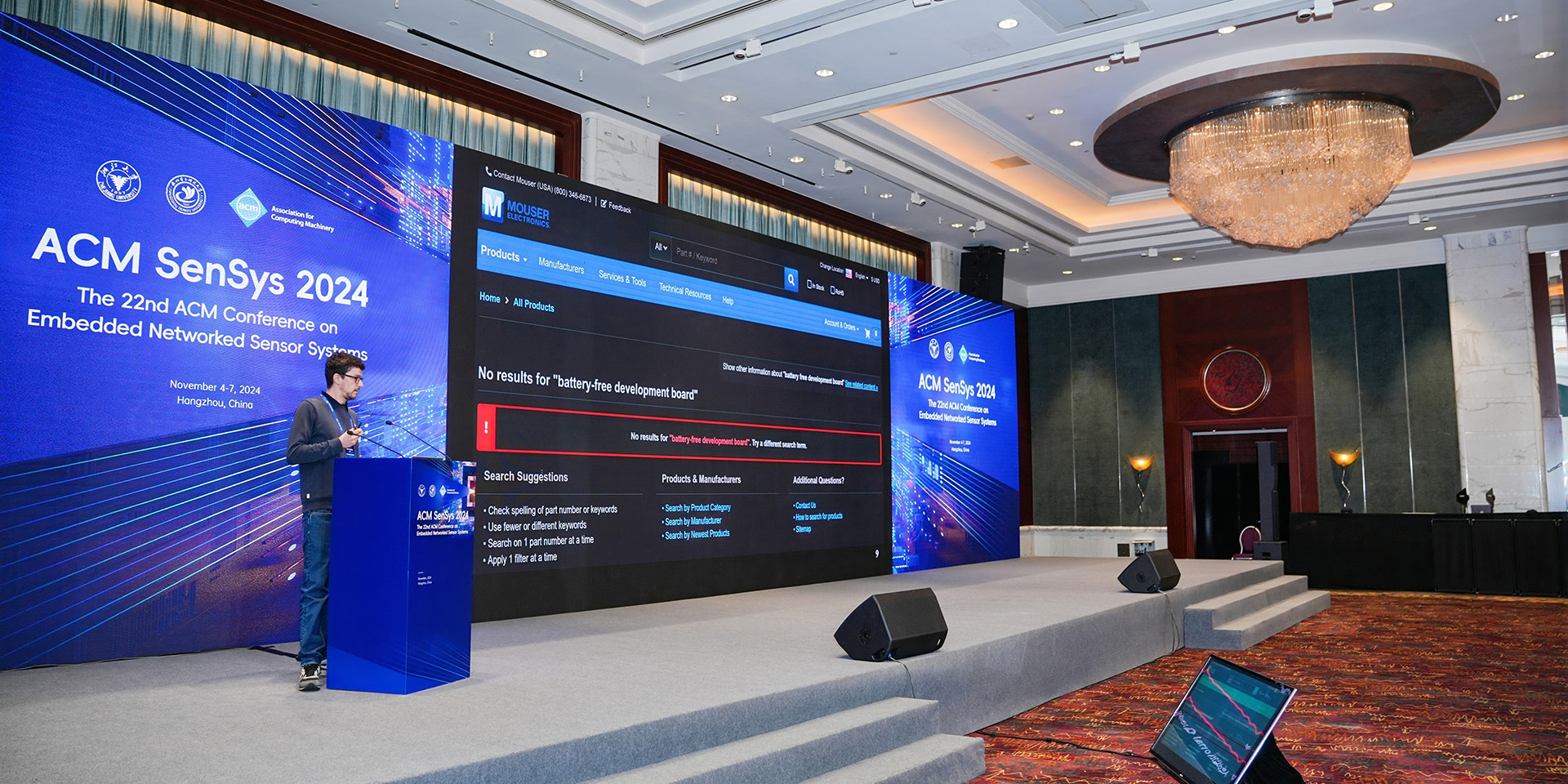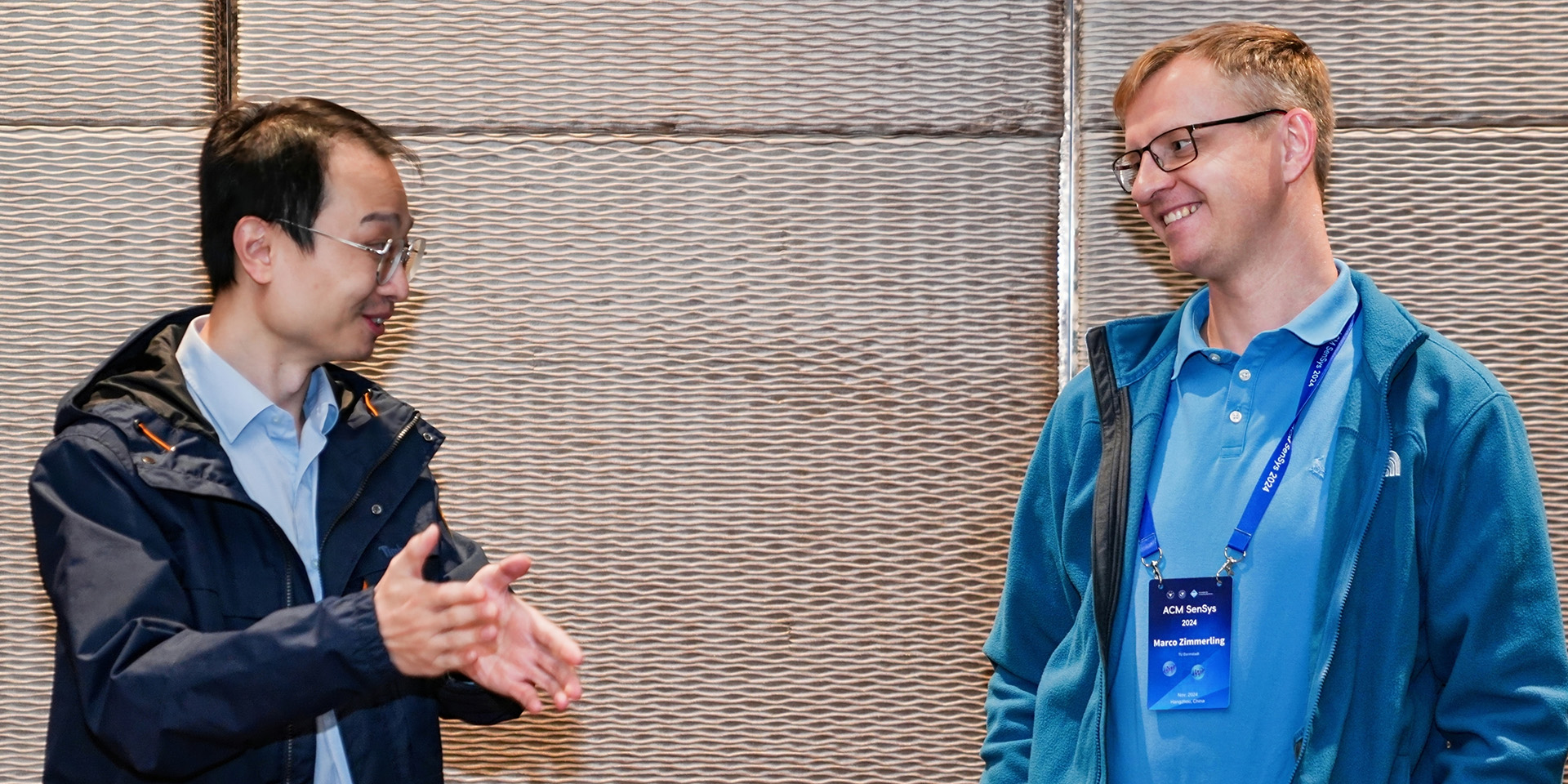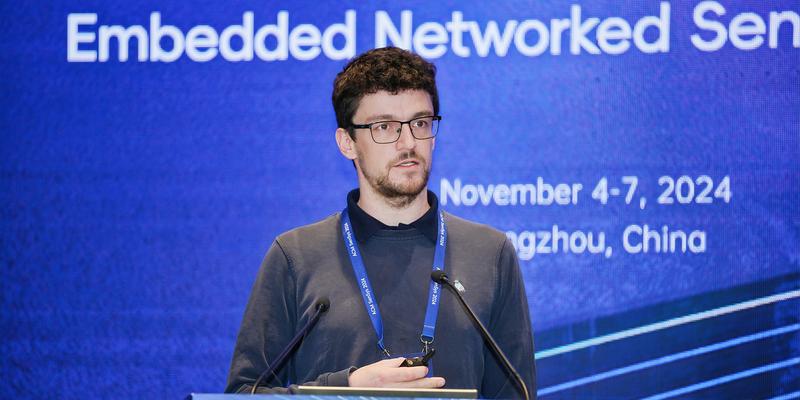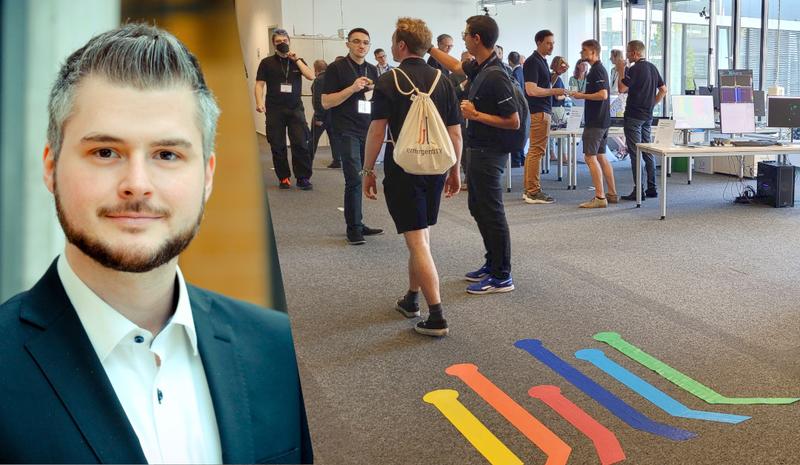emergenCITY PI Marco Zimmerling and his former research assistant Kai Geissdoerfer presented a user-friendly, commercially available, battery-free open-source hardware and software platform for the first time at the ACM Conference on Embedded Networked Sensor Systems (SenSys).
Fitness trackers, smart homes and voice assistants such as Alexa enrich our everyday lives. The problem is that most of these Internet of Things (IoT) devices rely on batteries that need to be replaced due to their limited lifespan. This consumes resources, is cost-intensive and harmful to the environment. Battery-free systems, on the other hand, are sustainable and furthermore more resilient because they are energy self-sufficient.

Kai Geissdoerfer presented Riotee, an open-source hardware and software platform for the battery-free Internet of Things at ACM SenSys. Photo: ACM SenSys 2024
At SenSys conference, which is being organized by the Association for Computing Machinery (ACM) from 4 to 7 November in Hangzhou, China, Marco Zimmerling, professor of computer science at TU Darmstadt and head of the Networked Embedded Systems Lab, and his former doctoral student and postdoc Kai Geissdoerfer, owner of Nessie Circuits, presented Riotee, a sustainable alternative to battery-powered embedded systems, to scientists from all over the world. The platform works without batteries and is powered entirely by renewable energy, such as small solar modules. As it was not developed for a specific product, a wide range of applications are possible.
“Being able to present our paper at SenSys is a great honor for our work,” Marco Zimmerling said. “It is the leading conference in our field of research.”
Files, source code and documentation are publicly available
Riotee consists of various hardware modules and software components. The corresponding design files for the hardware modules and the source code are publicly available free of charge, along with extensive documentation. In addition, software developers and researchers who have no or only limited possibilities for developing and producing their own hardware can order the hardware modules online.
“The combination of commercial availability, open-source and a wide range of possible applications makes Riotee a globally unique battery-free platform,” Marco Zimmerling said. It has the potential to become a catalyst for research and development on battery-free systems in the coming years.

Marco Zimmerling (on the right) in discussion with SenSys-participant Xiaoyuan Ma, embedded software architect for Industrial IoT. Photo: ACM SenSys 2024
Previous batter-free platforms were either not publicly accessible or were only designed for a specific product. Convenient online ordering of the hardware modules was also missing.
The work on Riotee was funded by the LOEWE center emergenCITY, the Emmy Noether Program of the German Research Foundation (DFG) and the Saxon State Ministry for Science, Culture and Tourism.
More information
- ACM SenSys 2024
- Networked Embedded Systems Lab
- Riotee: open-source hardware design, software, and documentation
Publication
Kai Geissdoerfer and Marco Zimmerling. 2024. Riotee: An Open-source Hardware and Software Platform for the Battery-free Internet of Things. In The 22nd ACM Conference on Embedded Networked Sensor Systems (SenSys’24), November 4–7, 2024, Hangzhou, China. ACM, New York, NY, USA, 13 pages. https://doi.org



